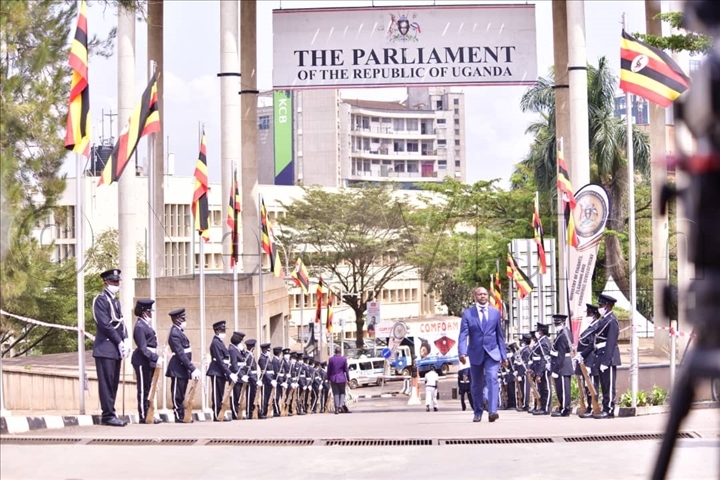Budget reading and fashion
The 2020/21's budget represents a 12.36% increase (about sh6 trillion) compared to the current financial year's sh40.5 trillion.
UGANDA | BUDGET READING | FASHION
Honorable Matia Kasaija will deliver this the 2020/2021 budget reading at the fifth and final session of the 10th Parliament under the theme: 'Stimulating the economy to safeguard livelihoods, jobs, business, and industrial recovery'.

We bring you a series of fashion statements from Members of Parliament, as they attend the budget reading. (Pictures by MIRIAM NAMUTEBI)

On April 24, the House, chaired by Speaker Rebecca Kadaga, passed the Appropriation Bill 2020, approving an sh45.5 trillion national budget for the next financial year 2020/2021.





In accordance with Article 156 of the Constitution, Parliament is mandated to approve the national budget by May 31, before the start of a new financial year.

The 2020/21's budget represents a 12.36% increase (about sh6 trillion) compared to the current financial year's sh40.5 trillion.
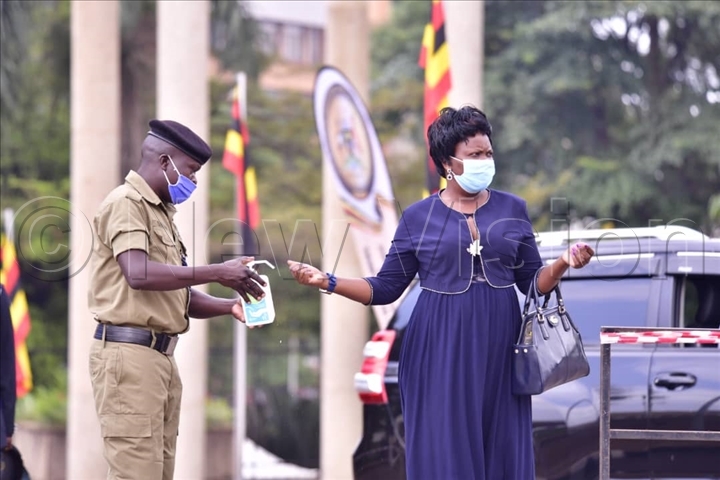
The largest proportion of the 2020/2021 budget will be financed domestically by up to 72.5%, going by the Appropriation Bill.
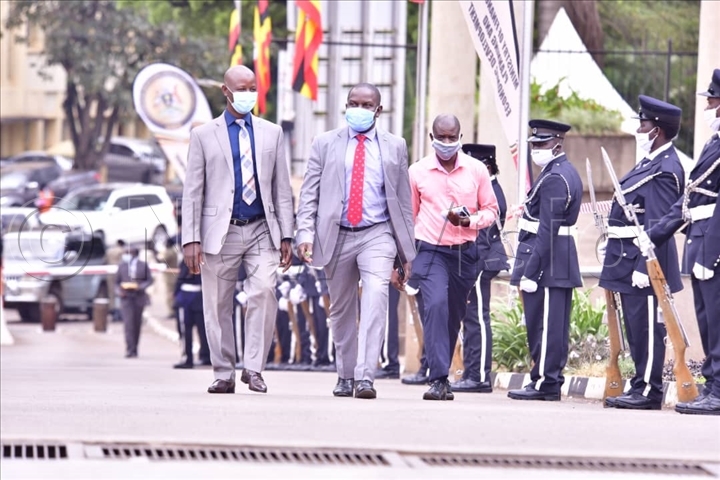
The works sector is followed by the security docket, which has been allocated sh4.5 trillion, more than the sh3.6 trillion it was allocated in the current financial year.

According to the Appropriation Bill, sh11.9 trillion is for recurrent expenditure, sh18.076 trillion for development expenditure, and sh15.494 trillion for statutory expenditure.

Part of the domestic financing will include revenue collection amounting to sh21.7 trillion and sh3.55 trillion in domestic borrowing. External support will be 27.5%.

According to a report by the Parliament's committee on the budget, the total revenue as a ratio to Gross Domestic Product (GDP) is projected to increase marginally from 13.4% in FY 2019/2020 to 13.9% in FY 2020/21.

The committee recommended that the Government strengthens the mobilisation and collection of revenues, which have stagnated below 16% of GDP for the past years.

According to the Appropriation Bill, the works and transport sector has again been allocated the biggest share, standing at sh5.8 trillion. This has been the trend for over a decade now; with President Museveni arguing that transport infrastructural development will spur production.

The sector's budget has, however, fallen compared to the sh6.4 trillion it was allocated in the current financial year.
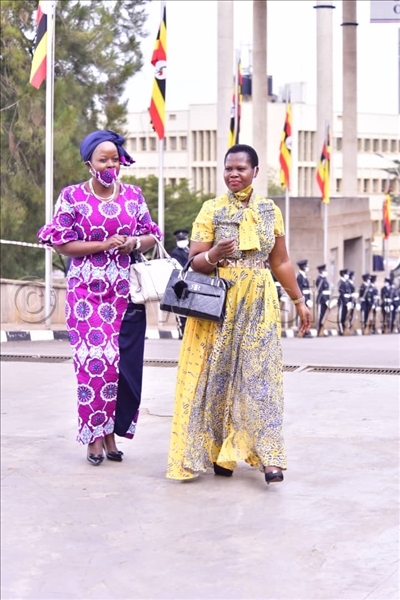
The Government has in the next financial year committed sh4 trillion towards interest rate payment.

Other heavily funded sectors include education (sh3.6 trillion), health (sh2.7 trillion), energy (sh2.6 trillion) and agriculture (sh1.3 trillion).

In its report, the committee recommended that the Government revises the national budget for the financial year 2020/2021 after the full effect of the coronavirus on the economy is ascertained.

It is no wonder, the President in his State of the Nation address hinted at having the budget revised ahead of the new financial year. During the passing of the budget, Kasaija told the House: "We have passed this budget in an environment which we are unsure of. If I return to this House, to make some adjustments, bear with me."

According to trends of previous annual budget allocations, the national budget has been increasing tremendously.

In the financial year 2015/16, the national budget was sh23.9 trillion.

Whereas the budget has steadily increased for the last five years, the GDP, which is the monetary value of all finished goods and services in the country, has been decreasing instead.
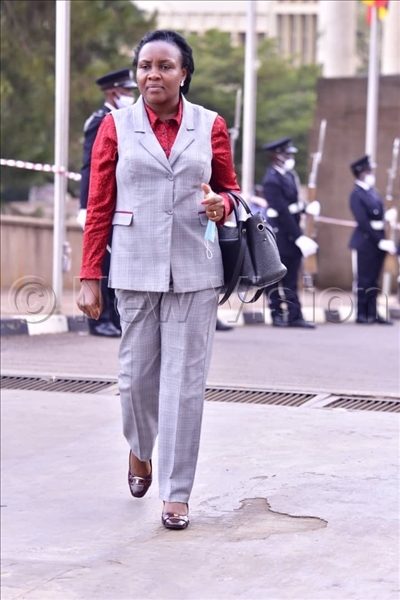
The GDP, for example, decreased from 4.7 % in 2016 to 3.8% in 2017, and only picked up in 2018 by 6.1%.

With COVID-19, the GDP is expected to decrease again.

The Uganda Bureau of Statistics revealed on Monday that the economic growth of various sectors declined in the second half of this financial year due to reduced global economic activity caused by COVID-19.

The economy grew by 3.1% during the current financial year, down from 6.8% the previous year.
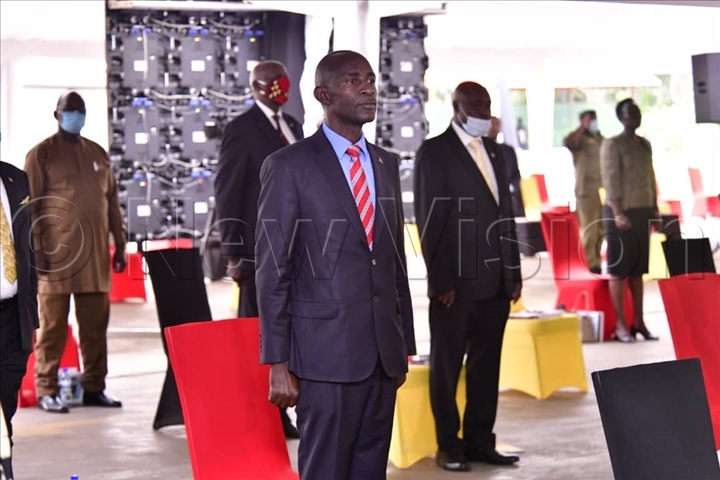
In his statement to Parliament recently, Kasaija told the MPs that the coronavirus would impact Uganda's economic growth.
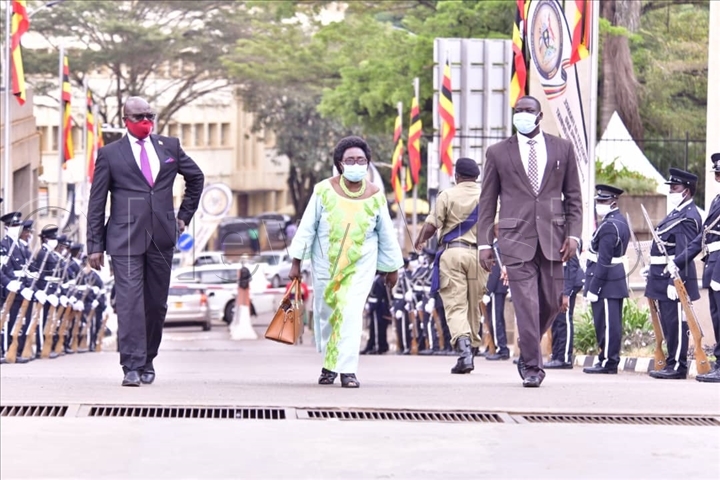
Given the current situation, the projection for growth in FY 2019/20 had been revised downwards from 6% to between 5.2 and 5.7%, depending on the severity of the impact of COVID-19 on Uganda.

